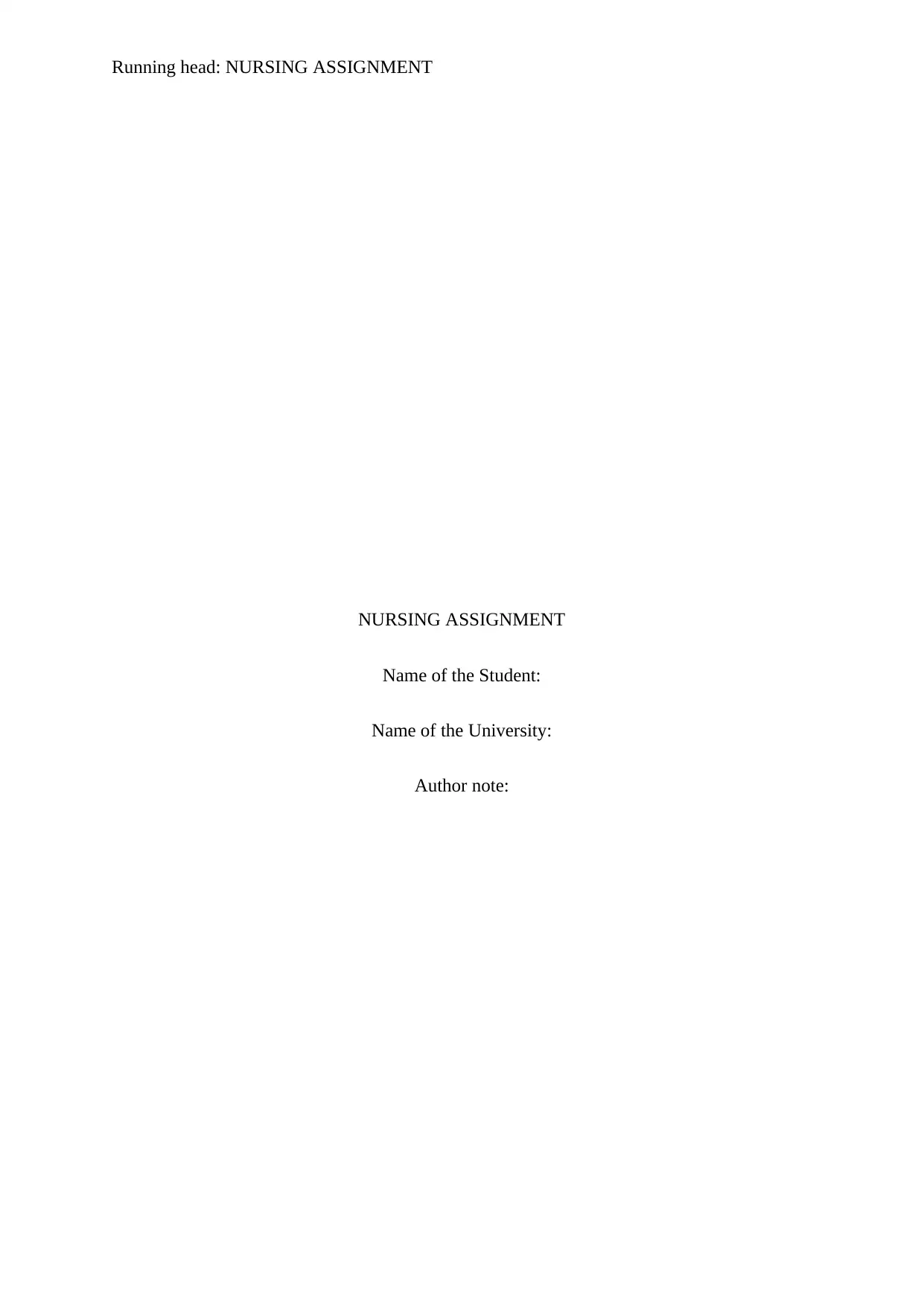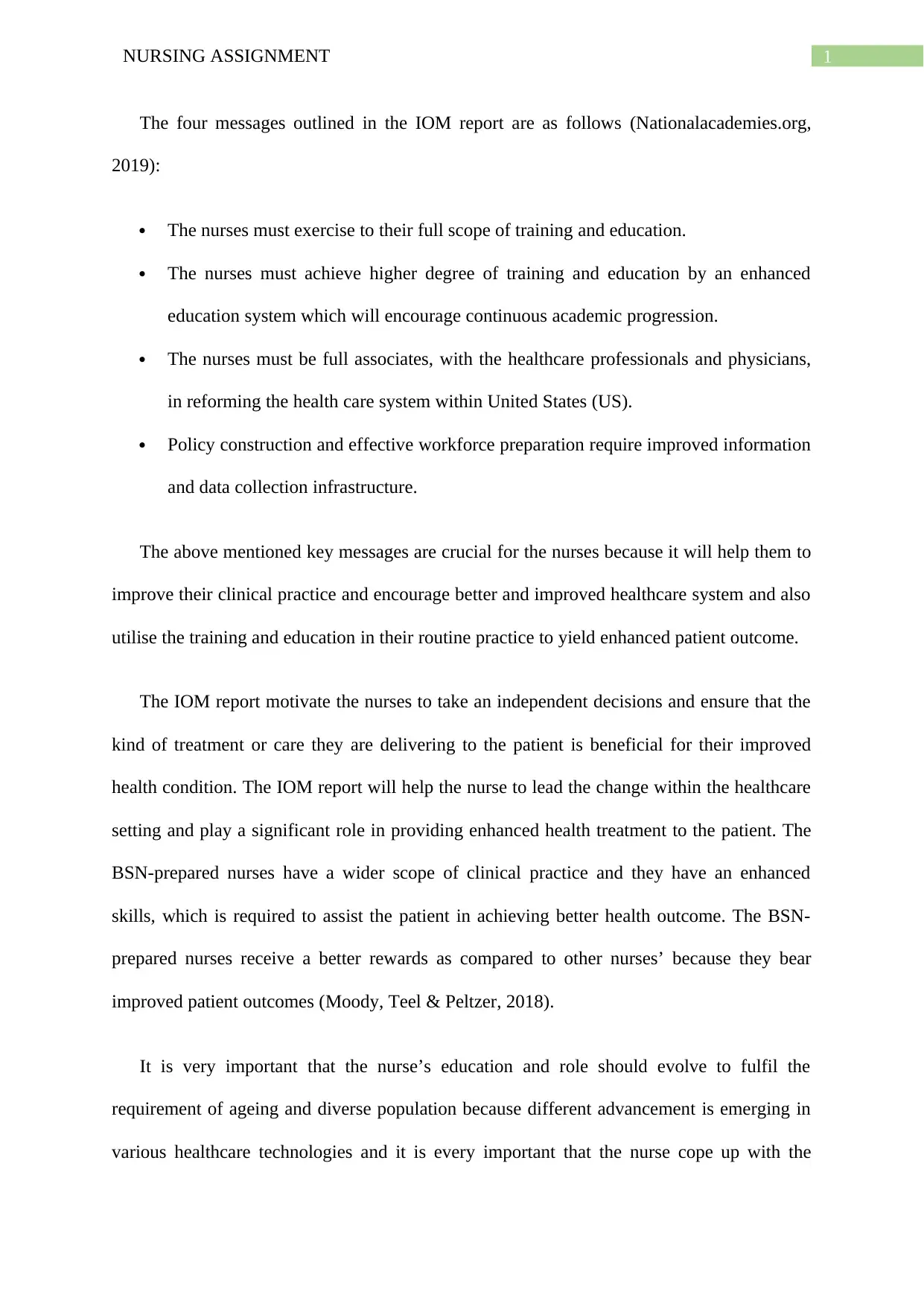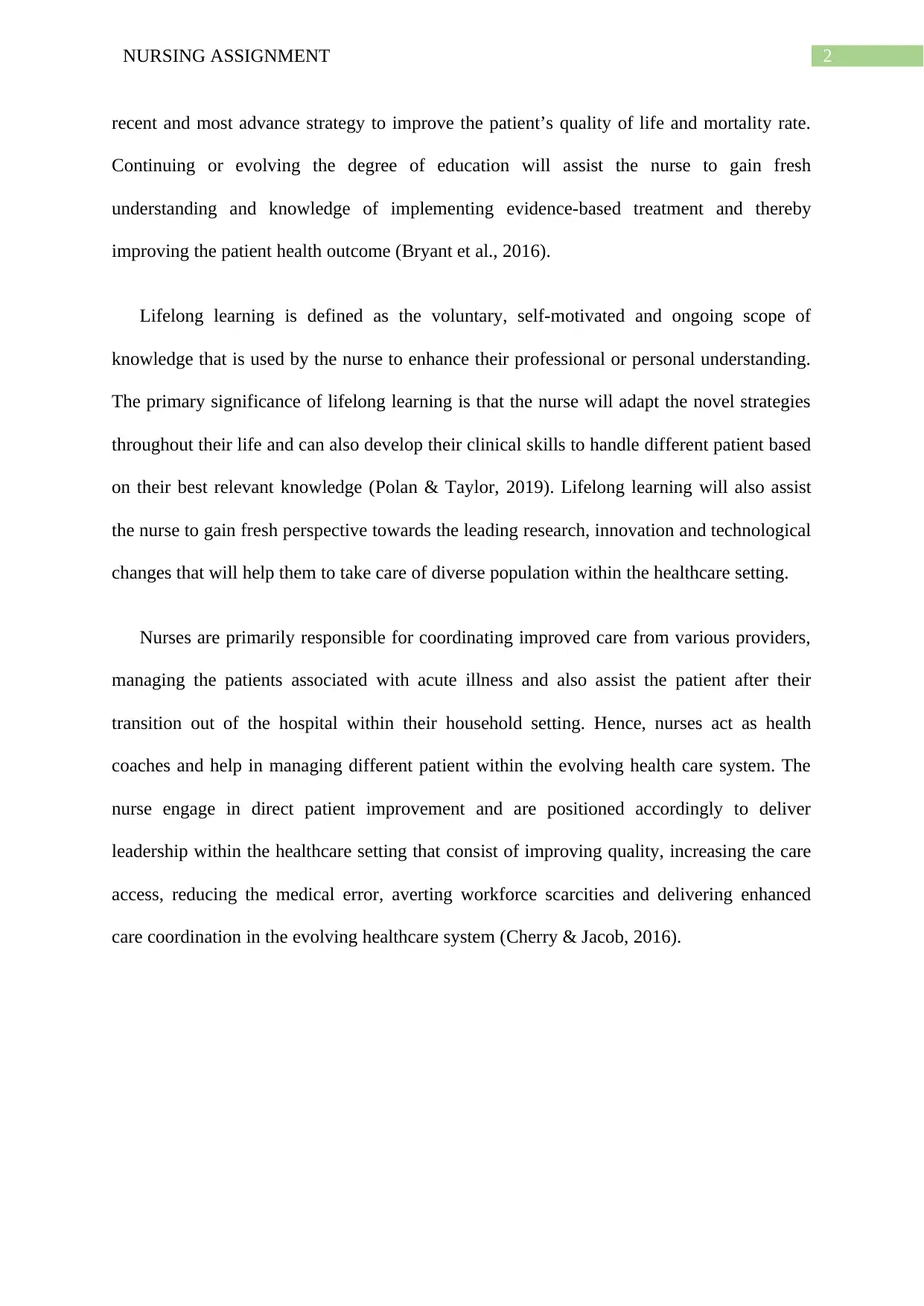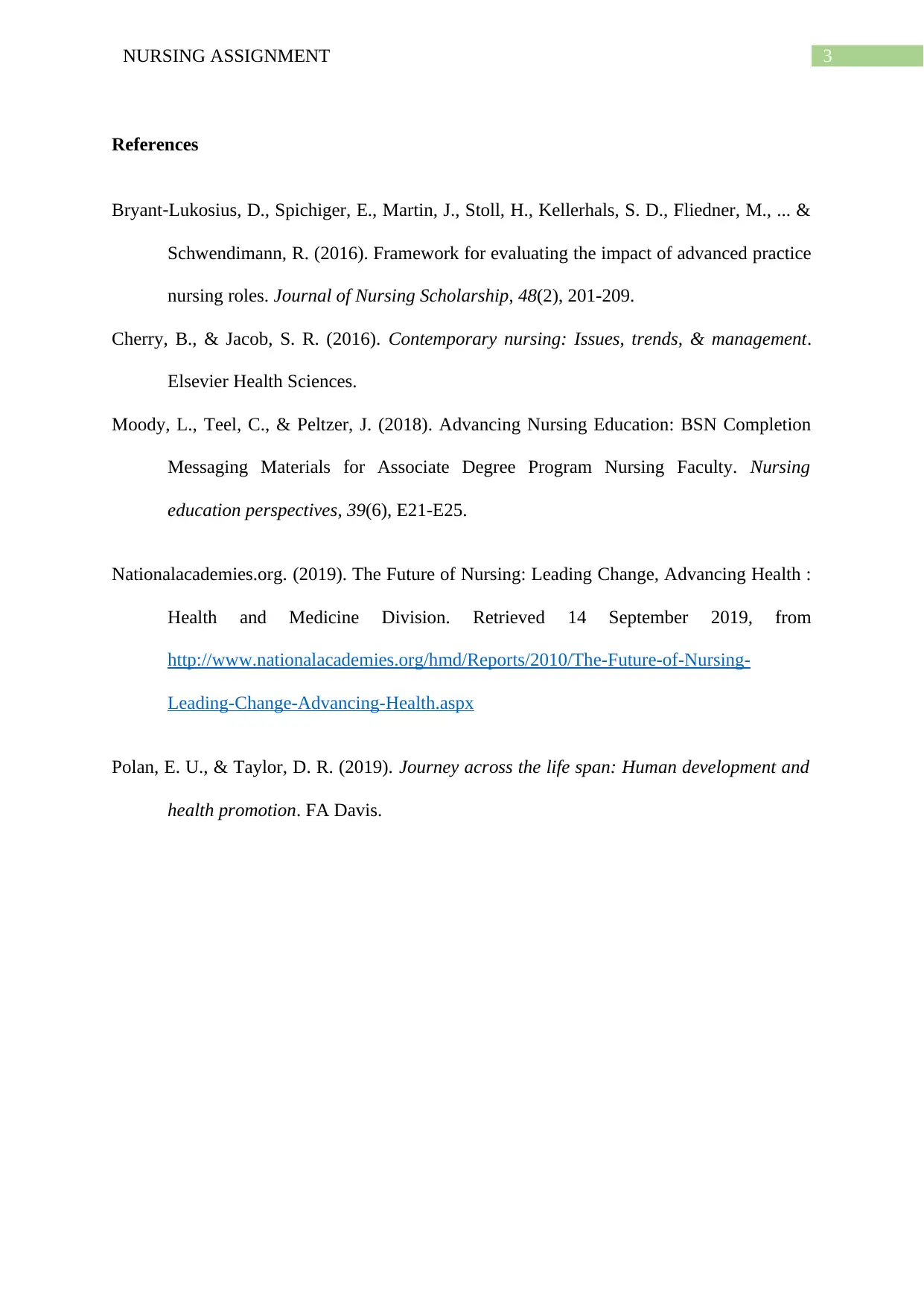Nursing: The IOM Report's Impact and Lifelong Learning Benefits
VerifiedAdded on 2022/11/09
|4
|788
|381
Essay
AI Summary
This nursing assignment delves into the critical messages outlined in the Institute of Medicine (IOM) report and their implications for nursing practice. It highlights the importance of nurses practicing to their full scope of education, pursuing higher degrees, and collaborating with other healthcare professionals to reform the healthcare system. The essay emphasizes how the IOM report empowers nurses to make independent decisions and deliver enhanced patient care. Furthermore, it discusses the benefits of Bachelor of Science in Nursing (BSN)-prepared nurses, the need for continuous education to adapt to evolving healthcare technologies, and the concept of lifelong learning. Lifelong learning enables nurses to adopt novel strategies, develop clinical skills, and gain fresh perspectives on research and innovation. The assignment concludes by underscoring the nurse's role in coordinating care, managing patients, and providing leadership within the healthcare setting to improve quality, access, and coordination of care.
1 out of 4











![[object Object]](/_next/static/media/star-bottom.7253800d.svg)